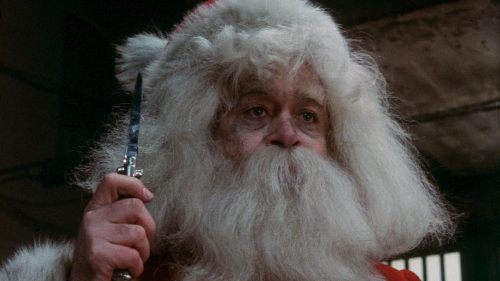You Need This Book: THE COMEDIANS
I sometimes buy books as Christmas presents in early December or November – so I can have a chance to read them before I have to actually wrap them up and give them away as a gift. OK, that’s a lie – I’m too lazy to wrap my Christmas presents, I just put them in a bag and throw some tissue paper on top. This rambling introduction is just an awkward way of leading into a very simple plea I am making this winter: buy The Comedians: Drunks, Thieves, Scoundrels and the History of American Comedy by Kliph Nesteroff. Buy it as a present and read it before you gift it or just buy it for yourself and cut out the pretense. Either way, you need to have this book in your life.
I finished The Comedians and immediately began poring through the book again from the first page – this time with a notepad and a pencil in hand, prepared to write down a list of comedy acts I was going to seek out. The book, released this past November by Grove Press, is a lively history of the world of comedy. From the stages of vaudeville to the garage of Marc Maron, The Comedians traces the lives – warts and all – of the people who made us laugh.
From the legends to the fringes and everything in between, The Comedians tracks the men and women who bled to bring a smile to America. Literally bled – I was riveted by the story of Joe E. Lewis, the comedian who broke a contract with the mob and, as a result, would have his throat and tongue mutilated. Lewis bounced back, though – earning the respect of the mob for his refusal to snitch and eventually gaining the friendship of Frank Sinatra who would go on to play him in the biopic The Joker is Wild.
Speaking of Frank Sinatra, there’s a great story in the book of Shecky Greene, a madcap comedian whose off-the-cuff act has been largely lost to time. Sinatra wanted Greene to become a regular member of his entourage, an honor Greene had no interest in. Greene joked “Frank Sinatra saved my life once. I was jumped by a bunch of guys in a parking lot. They were beating me with blackjacks. Sinatra said, ‘Okay, boys – that’s enough.’” Eventually, Sinatra, having been insulted to his face by Greene while shooting Tony Rome in Miami Beach, actually did go as far as to have five guys jump the comedian and beat him until he was bloody.
The book begins in the world of vaudeville. Buster Keaton’s parents would sew suitcase handles on the back of his coats so he would be easier to catch and throw during their act, which essentially amounted to child abuse. As part of The Three Keatons, Buster’s father would play at concentrating on a task such as working on taxes or changing a tire. Buster would enter the stage, annoy his father and promptly be thrown through the air and slammed against backdrops. Buster’s mother would scream for her husband to have mercy on their son. Yes, this was comedy. One stray kick to the head from his father left Keaton in a coma that would last eighteen hours.
As entertainment shifted around the comedians and the business went from burlesque houses to radio to television to the comedy clubs so prolific in the ‘80s, some stuff never changes – joke theft (the legends would all steal shamelessly from each other), feuds (Bill Cosby would stalk Richard Pryor – calling up nightclubs to get reports on Pryor’s early act, which Cosby insisted was stolen from him) and hidden pasts (Bob Hope did routines in blackface, Jerry Seinfeld used to do his observational humor with a blue streak, Rodney Dangerfield adopted his stage name to escape the fact that he was busted by the FBI for a roofing racketing scheme in which he preyed on military widows).
Nesteroff knows how to tell a story – the book weaves in and out through the lives of America’s comedians like the blueprint for a Martin Scorsese film. Careers rise and fall, bit players become major stars and headliners become opening acts. Nesteroff shines the spotlight on nearly forgotten players like Pigmeat Markham, a black comedian who came up in the ‘20s wearing blackface – huge painted white lips and all. Markham would continue to don the makeup long after it had ceased being socially acceptable – claiming it was part of tradition but really feeling insecure that his jokes wouldn’t land without the use of the makeup. Speaking of making jokes land, Markham was famous for ending jokes with his trademark – slapping the person he was telling the joke to across the head with an inflated cow bladder.
I can’t recommend The Comedians enough. It’s a great read and I guarantee it’s going to set you off on a rabbit hole of research – searching for YouTube clips or trolling eBay for vinyl from the heyday of Laff Records’ comedy albums, many of them produced illegally without the knowledge or consent of the comedian.
Add this book to your wishlist or just cut out the middle man and pick up your own copy like the adult you are. Either way, make a point to read this book and read it soon – at the very least, it’ll give you some entertaining small talk conversation pieces for your upcoming holiday parties.



